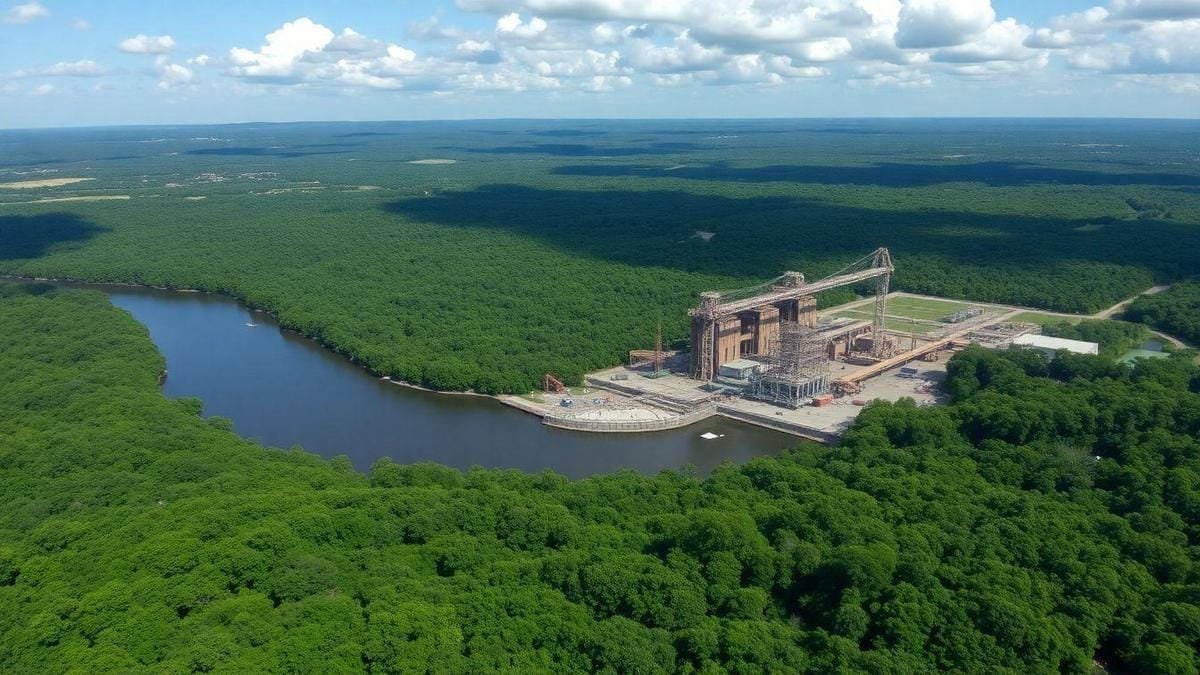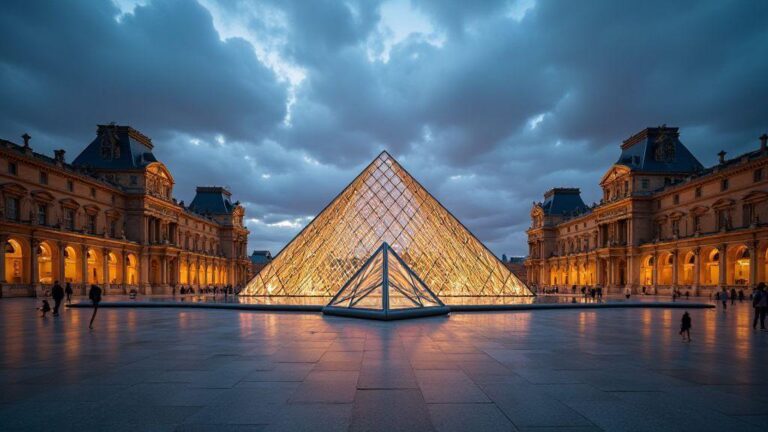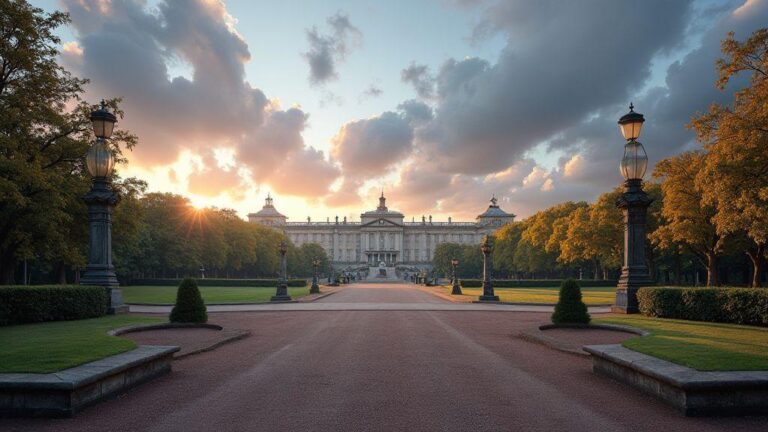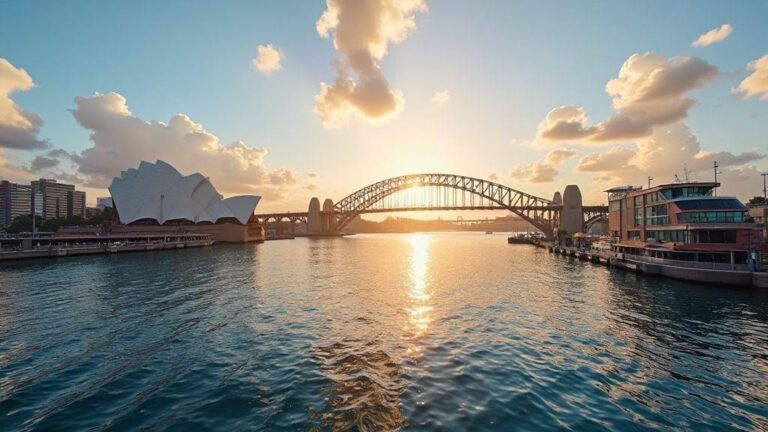Listen to this article
Details and costs of the construction of the Belo Monte hydroelectric plant are very interesting and important. In this article, you'll find out about the size and scale of the plant, how it was built, and how long it took. You'll also learn about the social and environmental impacts the plant has had on communities and nature. In addition, we'll talk about how much money was used and how the engineers faced challenges to make it all happen. Get ready for a journey through the world of the construction of the Belo Monte hydroelectric plant!
Key learnings
- The construction of Belo Monte is a large hydroelectric plant.
- It provides energy for many people.
- The project came at a high cost.
- Some people supported the construction, others didn't.
- The hydroelectric plant also affected the environment.

Size and Scale of the Belo Monte Hydroelectric Plant
Measuring the Plant's Magnitude
A Belo Monte Hydroelectric Plant is one of the largest in Brazil and the world! It is located in the state of Pará and is crucial for generating energy. To give you an idea, the plant can produce up to 11,233 megawatts of energy. That's like having thousands of light bulbs on at the same time!
Comparison with other plants
Let's see how Belo Monte compares to other famous power plants. Here's a table showing some of them:
| Plant name | Location | Capacity (MW) |
|---|---|---|
| Belo Monte | Pará, Brazil | 11.233 |
| Three Gorges | China | 22.500 |
| Itaipu | Brazil/Paraguay | 14.000 |
| Grand Coulee | USA | 6.809 |
As you can see, Belo Monte is very large, but the Three Gorges in China is even higher!
Why Size Matters
The size of the plant is important because the bigger it is, the more energy it can produce. This helps many homes and businesses to have light e energy to work. Imagine a big jigsaw puzzle: if you have lots of pieces, you can make a really nice picture. So it is with energy: the more you have, the better!
Construction Time of the Belo Monte Plant
How long did it take to build
A Belo Monte Hydroelectric Plant took about 6 years to be built. Construction began in 2011 and were completed in 2017. It's like counting the fingers on one hand, but instead of five, you count to six! To better understand the construction schedule, you can check out information on the construction time of the Belo Monte dam.
Phases of the Construction Schedule
There were several important stages in the construction of the plant. Here are some of them:
| Phase | Year |
|---|---|
| Start of construction | 2011 |
| First turbine ready | 2015 |
| Completion of the work | 2017 |
Each stage had a special objective, such as placing the turbines and build the structures. It's like putting together a big jigsaw puzzle!
What Delayed Construction?
There were a number of factors that delayed the construction of the plant. Here are some of them:
- Environmental problemsSome people were worried about what the construction would do to nature.
- Legal issuesThere were many discussions and lawsuits about the work.
- Project changesSometimes the engineers had to change how things were done.
These factors were like stones in the road, but the construction continued!

Social Impact of the Belo Monte Hydroelectric Plant
How Communities Have Been Affected
A Belo Monte Hydroelectric Plant is one of the largest in Brazil. It has a huge impact on the communities living nearby. Many people had to leave their homes to make way for the construction of the plant. This left some families sad and worried, as they had to leave their places and their memories behind.
In addition, the construction of the plant also affected nature. The rivers and forests have changed, impacting on animal and plant life. Communities that depended on fishing and agriculture felt these changes, making life more difficult.
Benefits for the Local Population
On the other hand, the plant has brought some good things to the local population. Let's take a look at some of the benefits:
- JobsMany people found work during the construction of the plant, improving their families' incomes.
- Energy: The plant produces a lot of electricity, allowing more homes and schools to have light.
- InfrastructureWith the construction of the plant, roads and other structures have been improved, making life easier for people living in the region.
What Do People Think About the Plant?
Opinions about the Belo Monte Hydroelectric Power Plant differ widely. Some people think the plant is good because it brings energy and jobs. Others, however, are concerned about what has happened to nature and the communities.
Here are some feelings that people express:
| Feeling | Example |
|---|---|
| Hope | "I hope the plant will bring more opportunities." |
| Sadness | "Nature has changed a lot and that makes me sad." |
| Uncertainty | "I don't know if the changes will be good for us." |
Many people are trying to find a balance between the benefits and the problems that the plant has brought.
Belo Monte Hydroelectric Power Plant Construction Costs
How much did it cost to build the plant?
A Belo Monte Hydroelectric Plant cost around R$ 30 billion. That's a considerable amount! To give you an idea, it's as if you had to collect several allowances over many years.
Comparing Costs with Other Works
Now, let's see how Belo Monte compares with other major construction projects. Here's a table showing some of the costs:
| Work | Cost (in billions) |
|---|---|
| Belo Monte Hydroelectric Plant | R$ 30 |
| Itaipu Hydroelectric Power Plant | R$ 20 |
| Rio-Niterói Bridge | R$ 1,5 |
As you can see, Belo Monte is much more expensive than the Rio-Niterói Bridge! This shows that building a power plant is a huge investment.
Where did the money come from?
The money to build the plant came from various sources. Here are some of them:
- GovernmentPart of the money came from the government.
- BanksMany banks helped finance the work.
- InvestorsSome people and companies have also invested in the construction.
That means a lot of people helped make the plant happen!

Belo Monte Plant Engineering Details
How Engineering Was Planned
A Belo Monte Hydroelectric Plant is one of the largest in the world. To build such a huge project, the engineers had to plan everything very carefully. They did a lot of drawings e models to understand how the plant would work. The team worked together to decide where to place the turbines and how to use the river water. They wanted everything to be safe and efficient, like a big jigsaw puzzle that needs to fit together perfectly.
Challenges facing engineers
The engineers faced many challenges during the construction of the plant. One of the biggest problems was the nature. They had to take care of the environment and the people who lived nearby. They also had to deal with the rain and the floods that could delay the work. In addition, building roads and bridges to bring materials to the site was quite a challenge! To learn more about engineering challenges, you can check out challenges faced in large construction projects.
Innovations in Plant Construction
During construction, the engineers used new technologies. For example, they used machines to move stones and make holes. They also used drones to see how the work was going from above. This helped to ensure that everything was going well. Innovations helped make construction faster and safer.
| Aspect | Details |
|---|---|
| Size | 11,233 MW of installed capacity |
| Construction time | Approximately 6 years |
| Cost | Around R$ 30 billion |
| Social impact | Changes in the lives of local communities |
Financing the Belo Monte Project
Who paid for the construction?
The construction of the Belo Monte hydroelectric plant was a very large and costly project. Various sources of funding helped pay for it. The Brazilian government, banks and private companies were the main investors. They joined forces, like a soccer team, to raise the money needed.
Here's a table to help you understand who paid:
| Financing Source | Percentage of Total |
|---|---|
| Government of Brazil | 30% |
| Banks | 50% |
| Private companies | 20% |
How Financing Affected the Project
The way the money came in affected the project in many ways. If I didn't have enough moneyAs a result, construction could stop and many people would be out of work. With the funding, many people got jobs and helped their families.
On the other hand, some people worried that the money wouldn't be put to the best use. This led to discussions on how to spend the money correctly and whether it was fair for everyone.
What Happened to the Money?
Once the money was raised and the project started, things weren't so simple. Some problems appeared. The money that was meant to build the plant also had to be used to solve problems with local communities. This means that not all the money was used as planned.
To sum upThe money that paid for the construction of the Belo Monte hydroelectric plant came from various sources. It helped create jobs, but it also brought challenges. What happened to the money is an important part of the history of this project.

Construction Strategies for the Belo Monte Plant
Planning and Logistics
When it comes to Belo Monte Hydroelectric Plant, o planning and logistics are very important. Imagine you're putting together a giant jigsaw puzzle. First, you need to know how many pieces you have and how they fit together. So the engineers planned everything out before they started building. They did a lot of drawings e maps to understand how everything was going to work.
Here are some of the things they considered:
- Location: The plant is on the Xingu River in Brazil. They had to think about how the water flows and where would be the best place to build it.
- MaterialsThey used a lot of materials like concrete and steel. They needed to know where to bring it all from.
- PeopleThousands of workers helped with the construction. It was like organizing a big party, where everyone had a task.
Techniques used in construction
The techniques used in the construction of the plant were like the tools that you use to play. Each tool has a special purpose. Here are some of the techniques used:
- ExcavationThey dug up the ground to make room for the plant.
- Dam constructionThis is like building a big retaining wall to hold back the water.
- Turbine installation: Turbines help transform the force of water into electricity. It's like turning a crank to make something work.
| Technique | Description |
|---|---|
| Excavation | They dug up the ground to make room |
| Dam construction | They built walls to hold back the water |
| Turbine installation | They put in the turbines that generate electricity |
Why are Strategies Important?
The strategies are very important because they help avoid problems. If you don't plan well, you can end up with a mess. In the construction of the Belo Monte Dam, planning helped ensure that everything was done right. safe e efficient. It also helped saving money e time. And who doesn't like to save money, right?
Belo Monte Hydroelectric Power Plant Operating Costs
How much does it cost to keep the plant running?
Maintaining Belo Monte Hydroelectric Plant running is not cheap. Operating costs include things like paying the workers, maintaining the machines and making sure everything is safe and in order. On average, operating costs can amount to R$ 1 billion per year! That's a lot of money, isn't it?
Comparison with Other Power Plant Costs
Let's compare the costs of the Belo Monte plant with other plants. Here's a table to help you understand:
| Plant | Annual Operating Cost (in R$) |
|---|---|
| Belo Monte | 1.000.000.000 |
| Itaipu Power Plant | 800.000.000 |
| Tucuruí Power Station | 600.000.000 |
As you can see, the Belo Monte power plant has higher operating costs than most other plants. This may be because of its size and the amount of energy it generates.
What Affects Operating Costs?
Several factors can affect the plant's operating costs. Here are some of them:
- Number of EmployeesThe more people working in the plant, the higher the cost.
- MaintenanceKeeping the machines running smoothly costs money.
- Materials: Buying parts and materials for repairs also counts.
These factors are important for understanding how costs work at the Belo Monte Hydroelectric Power Plant.

Environmental Impact of the Belo Monte Plant
What Happened to Nature?
A Belo Monte Hydroelectric Plant is a major construction project in Brazil. When it was built, many nature was affected. Trees were cut down and many animals lost their homes. Imagine a place where there were lots of birds, monkeys and fish, and suddenly all that changed. The water in the river also changed. This means that some of the plants and animals that used to live there found it difficult to survive.
Measures to Protect the Environment
To try to help nature, some measures have been taken. Here are some of them:
- Replanting trees: Plant new trees to replace those that have been cut down.
- Protecting areas: Some parts of the forest have been protected so that the animals can live in peace.
- MonitoringScientists are observing how nature is reacting to these changes.
How is Impact Assessed?
Impacts on nature are measured in various ways. Here are some ways to evaluate them:
| Method | Description |
|---|---|
| Fauna studies | Check how many animals still live in the area. |
| Water analysis | Test that the river water is clean and healthy. |
| Reports | Create documents that show what has been done and what needs to be improved. |
These actions help us understand how Belo Monte Power Plant is affecting the environment and what can be done to protect nature.
Conclusion
A Belo Monte Hydroelectric Plant is a major project that has brought about many changes. It helps to provide energy for many people, but it has also brought challenges for the nature and the communities all around. Construction took time and cost a lot of money, but the engineers worked hard to make it all happen. It's important to understand how these great works affect everyone's lives. If you're curious and want to find out more about this subject and others like it, be sure to visit the website Renovation Tips!
Frequently asked questions
1. What are the details of the construction of the Belo Monte hydroelectric plant?
The plant has large dams, canals and turbines. It is located on the Xingu River.
2. How much did it cost to build the Belo Monte hydroelectric plant?
It cost around 30 billion reais. That's a lot of money!
3. When did construction begin?
It started in 2011 and took a while to finish.
4. Why was the Belo Monte hydroelectric plant built?
To generate energy and help people with electricity.
5. How many people work at the Belo Monte power plant?
Thousands of people were involved in the construction.
6. What is the plant's energy capacity?
It can generate up to 11,000 megawatts of energy. Wow!
7. Is the Belo Monte hydroelectric plant sustainable?
It helps to provide clean energy, but it has its challenges.
8. What are the environmental impacts of construction?
There have been changes in the region's forests and rivers.
9. How does the plant affect local communities?
Some people were displaced and their lives changed.
10. Is the plant fully operational?
Yes, but construction and improvements will continue for a while.
11. Who is financing the construction of the Belo Monte hydroelectric plant?
The government and banks help pay the costs.
12. Are there any conservation projects in the plant area?
Yes, there are projects to protect nature and wildlife.
13. Can the plant help with energy crises in Brazil?
Yes, it will help a lot in times of power failure!

Adalberto Mendes, a name that resonates with the solidity of concrete and the precision of structural calculations, personifies the union between engineering theory and practice. A dedicated teacher and owner of a successful construction company, his career is marked by a passion that blossomed in childhood, fueled by the dream of erecting buildings that would shape the horizon. This early fascination led him down the path of engineering, culminating in a career where the classroom and the construction site complement each other, reflecting his commitment both to training new professionals and to bringing ambitious projects to fruition.




